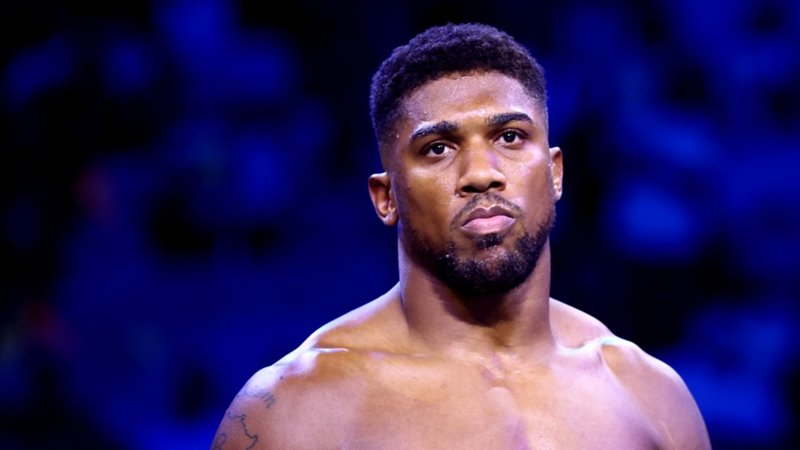Anthony Joshua’s journey from the streets of Watford to the summit of heavyweight boxing embodies a narrative of resilience, redemption, and relentless ambition. With a career marked by Olympic glory, world titles, and seismic fights, Joshua has cemented his legacy as one of Britain’s most influential athletes. Here, we explore his evolution, defining battles, and future ambitions.

Early Life: Forged in Adversity
Joshua’s path began in Watford, England, born to a Nigerian mother and a father of Nigerian-Irish heritage. His childhood shuttled between London and Nigeria, where he attended the strict boarding school The Bells in Ikenne. This period instilled in him a rugged discipline: waking at dawn, fetching water, and navigating hierarchies among older students. As Joshua recalled, “I learned how to protect myself… Adapt.” Returning to the U.K. at 12, he discovered his physical prowess—absorbing punches from cousins and excelling in athletics—before a brush with legal trouble at 17 steered him toward boxing.
Amateur Accolades and Olympic Gold
Joshua’s amateur career was meteoric. Starting at 18, he rapidly claimed national titles and a silver medal at the 2011 World Championships. His crowning achievement came at the 2012 London Olympics, where he defeated reigning champion Roberto Cammarelle in a controversial split decision to win super-heavyweight gold. This victory earned him an MBE and laid the foundation for his professional ascent.
Professional Dominance and Defining Fights
Joshua turned pro in 2013 under Matchroom Boxing, amassing a 22-0 record with 21 KOs by 2017. His physique (6’6”, 82-inch reach) and orthodox stance became weapons, enabling a jab-centric, power-punching style. Key milestones include:
- 2016: Knocked out Charles Martin in Round 2 to claim the IBF title.
- 2017: Overcame Wladimir Klitschko in an 11th-round TKO (Fight of the Year), unifying the WBA and IBO belts.
- 2019: Suffered a stunning TKO loss to Andy Ruiz Jr.—a defeat he avenged six months later via masterful tactical boxing.
Table: Anthony Joshua’s Key Statistics
| Attribute | Detail |
|---|---|
| Record | 28-4 (25 KOs) |
| Knockout Percentage | 88.29% |
| Height/Reach | 6’6” (198 cm) / 82” (208 cm) |
| Stance | Orthodox |
| Titles Held | IBF, WBA, WBO (2 reigns) |
The Crucible of Loss and Reinvention
Joshua’s career nadir came with back-to-back losses to Oleksandr Usyk (2021–2022) and a devastating KO by Daniel Dubois in September 2024. Yet, each setback catalyzed reinvention. After the Ruiz loss, he dissected his training, studied boxing’s “teachers” (like Cus D’Amato), and embraced tactical nuance over brute force. Following the Dubois defeat, he underwent elbow surgery but eyes a September 2024 rematch for the vacant IBF title at Wembley—a chance to reclaim his throne.
Future Legacy: Fury, Wilder, and Beyon
At 35, Joshua’s next moves are legacy-defining. Promoter Eddie Hearn confirms only one 2025 fight, with three scenarios:
- Tyson Fury: The long-awaited all-British clash. Despite Fury’s retirement claims (“I’m happily retired”), Hearn believes he’ll return: “He’s still at his peak… It’ll happen.”
- Deontay Wilder: If Wilder rebounds from recent losses, this remains a blockbuster.
- Daniel Dubois Trilogy: Should Joshua avenge his loss, a decider could cement their rivalry.
Beyond the ring, Joshua plans a care home for retired boxers, addressing the sport’s health toll. “What I instill in my kids will still be here,” he notes—a nod to legacy beyond belts.
Conclusion: The Unfinished Saga
Anthony Joshua’s career mirrors heavyweight boxing itself: unpredictable, brutal, and perennially compelling. His resilience transforms defeats into comebacks, and his ambition—whether for Fury or philanthropy—proves his impact transcends the ring. As he prepares for Dubois at Wembley, one truth endures: Joshua’s story, like his punches, refuses to fade.


Joshua’s journey is truly inspiring, showing how resilience and adaptability can shape a person’s destiny. His early years in Nigeria and the discipline he gained there clearly laid the foundation for his success. It’s fascinating how he turned challenges, like his legal trouble, into opportunities to focus on boxing. His Olympic victory was a turning point, but the losses to Usyk and Dubois show that even the greatest face setbacks. I wonder how he mentally prepares for these comebacks—what drives him to keep pushing? His plans for a care home for retired boxers are commendable, addressing a much-needed issue in the sport. Do you think his legacy will be defined more by his in-ring achievements or his contributions outside of it?
Joshua’s journey is truly inspiring, from his multicultural upbringing to his rise in the boxing world. It’s fascinating how his early experiences in Nigeria shaped his resilience and discipline. His ability to adapt and reinvent himself after setbacks, like the losses to Usyk and Dubois, shows his mental strength. The rematch for the IBF title at Wembley sounds like a pivotal moment—could this be the fight that cements his legacy? His plan to open a care home for retired boxers is commendable; it’s rare to see athletes addressing the long-term impacts of their sport. Do you think he’ll be able to balance his boxing career and this philanthropic endeavor? Overall, Joshua’s story is a testament to perseverance and growth.
Output: Joshua’s path began in Watford, England, born to a Nigerian mother and a father of Nigerian-Irish heritage. His childhood shuttled between London and Nigeria, where he attended the strict boarding school The Bells in Ikenne. This period instilled in him a rugged discipline: waking at dawn, fetching water, and navigating hierarchies among older students. As Joshua recalled, “I learned how to protect myself… Adapt.” Returning to the U.K. at 12, he discovered his physical prowess—absorbing punches from cousins and excelling in athletics—before a brush with legal trouble at 17 steered him toward boxing.
Joshua’s amateur career was meteoric. Starting at 18, he rapidly claimed national titles and a silver medal at the 2011 World Championships. His crowning achievement came at the 2012 London Olympics, where he defeated reigning champion Roberto Cammarelle in a controversial split decision to win super-heavyweight gold. This victory earned him an MBE and laid the foundation for his professional ascent.
Josh turned pro in 2013 under Matchroom Boxing, amassing a 22-0 record with 21 KOs by 2017. His physique (6’6”, 82-inch reach) and orthodox stance became weapons, enabling a jab-centric, power-punching style. Key milestones include:
Joshua’s career nadir came with back-to-back losses to Oleksandr Usyk (2021–202) and a devastating KO by Daniel Dubois in September 2024. Yet, each setback catalyzed reinvention. After the Ruiz loss, he dissected his training, studied boxing’s “teachers” (like Cus D’Amato), and embraced tactical nuance over brute force. Following the Dubois defeat, he underwent elbow surgery but eyes a September 2024 rematch for the vacant IBF title at Wembley—a chance to reclaim his throne.
At 35, Joshua’s next moves are legacy-defining. Promoter Eddie Hearn confirms only one 2025 fight, with three scenarios:
Beyond the ring, Joshua plans a care home for retired boxers, addressing the sport’s health toll. “What I instill in my kids is the ability to adapt. What I instill in my kids is the ability to adapt. What I instill in my kids is the ability to adapt.”